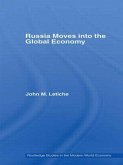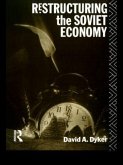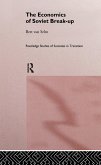Unless you're Robinson Crusoe or a hermit, all of us must build relationships with other people every day, at work and at home. Every country, one way or another, has a set of rules that dictate how to do this successfully. Some people explain these rules to us-what we must do to reap the reward (e.g., get paid for our work) and what happens when we don't-while the most strict and mandatory requirements come from representatives of the state. These rules are usually built on some general concept that is accepted as truth, either by the majority or the group in power.I began my career in 1981 as a computer engineer for the Soviet army, working as part of the state-controlled economic system. When that system collapsed in 1992, I went into business for myself and have run many successful companies ever since. In ASKING THE RIGHT QUESTIONS, I describe interactions of human beings (using myself as an example) with the state hierarchy as "vertical," as these interactions imply power and subordination, and economic activities as "horizontal," as those interactions were generally based on agreements (or contracts). Specifically, I learned to see the state as nothing more than human beings who obtained their power because of some kind of convention. One could argue that the people themselves gave this power to the state, in the belief that the state knew how to achieve safety and obtain good results better than they did. In most cases, the state takes some general idea-be that communism, democracy, liberalism, etc.-and uses that as the basis for rules or algorithms that people have to obey.ASKING THE RIGHT QUESTIONS gives readers an inside look at a very specific process-the Russian economic and political system over the past four decades-while removing the microscope from the equation. I wrote the book not as a scientist, but as a person looking for their place in the everyday changing world, especially in a part of the world where all of these changes happened in a most dramatic (or most stupid) way. I'll take readers inside that process, from the perspective of the lab mouse in a chain of economic and social experiments-myself. At its heart, this is a book about human relationships: how all of us look for the best way to make these relationships, based on mutual understanding, as well as how we often fail in our interactions by cheating ourselves and each other. Because, once you strip away the analysis, the real "economy" is about what people do for each other. There is no economic "system," per se, other than the one that is built by people and which depends on people working with each other. This philosophy not only reflects my approach to business, but also has usually helped me launch my best projects in sales.
Bitte wählen Sie Ihr Anliegen aus.
Rechnungen
Retourenschein anfordern
Bestellstatus
Storno








